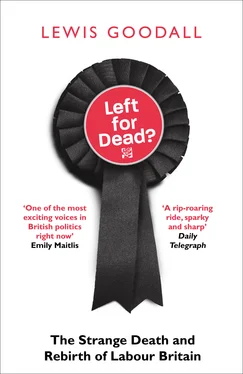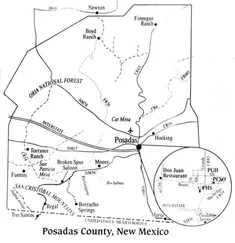But the people who didn’t make a song or dance about it most were the Labour government itself. It was so desperate to appear respectable, not to hark back to Labour governments of long ago, that the most social democratic things they did were never presented as such. They were offered to the country and to their own voters, from conception to implementation, through the way they were explained and communicated, in terms of the market and of individual empowerment. Consequently, what they didn’t do is sew the threads together in a moral critique of capitalism, or of politics more generally. It revelled in its banality, in its dull managerialism. New Labour was often radical but it usually pretended that it wasn’t. Today’s leftists are the opposite. New Labour did social democracy on the quiet, in deed if not in spirit. Corbynism does it through a loudspeaker.
But the sense of mission matters much more than Blair thought it did – as Peter Shore, the former Labour cabinet minister, once said:
‘You’ve always got to have in mind with a Labour Party that if it isn’t a radical party, if it isn’t a party of change, if it isn’t a party that’s committed to making Britain a fairer more equal society then that idealism, that enthusiasm, that energy that goes with that, will be denied it. And if the Labour Party plays too safe for too long then it really will be denying its own heritage.’
Too often, New Labour, desperate to be accepted and to be seen to be in the middle ground, was insufficiently proselytising about just how radical its own achievements were. Looking back it’s clear it was, broadly speaking, a social democratic government. But it didn’t always look or feel that way at the time. As a result, it allowed its internal opponents to cast it as dull technocrats and themselves as the true inheritors of the party’s radical flame. At times, inexcusably, Blair and others acted as if they weren’t political at all. Indeed, he would say in 1999 that ‘I was never really in politics. I never grew up as a politician. I don’t feel myself a politician even now. I don’t think of myself as being a politician in that sense of someone whose whole driving force in life is politics.’ And in so doing he managed to lay the foundations of his own unmaking within the Labour Party.
James Graham’s 2017 play Labour of Love wrestles with recent Labour history and, in so many words, this precise tension. The plot revolves around a Midlands MP, David Lyons, and thirty years of tribulation and trial within the party. In one scene, the MP’s caseworker, Jean Whittaker, offers a killer assessment of the New Labour period: ‘All looks good on the outside but it only takes one little tremor to bring the whole thing down.’ Lyons jumps to the government’s defence, listing all of the new schools and hospitals that have popped up in the area and the new-look town centre, but Whittaker is unimpressed: ‘Yeah, spending, good, fine, but not the actual difficult work of digging deep down into the underlying factors woven into the rotten fabric of this unfair fucking country.’
In other words, New Labour did not in any way challenge the fundamental economic assumptions of the British economy. It believed – as most people did – that at base the British economy was working well and that it was a new sustainable settlement. The basic economic model did not need to be challenged or changed; the sole question was about what you did with the bounty of the untrammelled free market – and New Labour’s answer was, among other things, spend it on kids like me. The problem was, as Whittaker says in the play, that as soon as the good times ended, it was all too easy to turn the taps off. This happened again and again across the West where social democrats had governed. As the academic Shiri Berman told me:
‘These new centre-left politicians celebrated the market’s upsides but ignored its downsides. They differed from classical liberals and conservatives by supporting a social safety net to buffer markets’ worst effects, but they didn’t offer a fundamental critique of capitalism or any sense that market forces should be redirected to protect social needs. When the financial crisis hit in 2008, this attitude repelled those who viewed globalisation as the cause of their suffering and wanted not merely renewed growth, but also less inequality and instability.’
It was all too easy for such measures to be reversed by the Tories, as soon as the good times ended. By contrast, as a signifier of the power of their achievement, Labour did not attempt to reverse the changes to Britain’s political economy that the Tories augured in the 1980s. By way of illustration, Labour’s enduring reforms – which were substantial – were usually structural ones: the Scottish Parliament, the Welsh Assembly, the London mayoralty, the minimum wage, civil partnerships to name but a few. But New Labour was too dewy-eyed about the virtues of the market. As a result, the question Giles Radice posed on that heady day in 1997 is still apposite: ‘What will Tony’s success consist of: election victories or something more permanent? The jury is out.’ The answer, we now know, was somewhere in between. Some permanent structural changes, a reinvigoration of the public realm but not a new settlement in favour of social democracy.
In fairness, it is easy now to say with hindsight what they should have done. Moreover, it seemed before 2008 at least as if New Labour had created a new settlement. When they assumed the leadership of their party, David Cameron and George Osborne did not initially dare to question Labour’s spending. On the contrary, they called on the government to increase spending on public services. It would not even explicitly commit to tax cuts, the raison d’être of Toryism; only cautiously, gingerly, daring to say that they would ‘seek to share the proceeds of growth’ at some undefined point, probably far in the future.
This, as we now know, did not endure. The New Labour settlement was not as successful at changing the minds of its opponents as the Thatcherite one had been. But perhaps one of the reasons for that is Blair himself, who was dedicated not only to the market but to the idea that he wasn’t even political at all. This critique is perhaps the most damaging.
At times New Labour seemed to go out of its way to undermine the very notion of political change itself. So convinced did Blair become about the virtues of the market and of the overweening power of globalisation (and the cultural changes with which it was associated) that New Labour appeared to forget that many of its voters voted Labour to protect themselves from those same forces. Over time, Blair’s rhetoric adopted increasingly determinist and fateful overtones. His interpretation of the globalised world came to imply that political action was barely possible. That was because globalisation was an unstoppable, inexorable force that could be neither halted nor much changed. In conference speech after conference speech a parade of government ministers trotted out the same mantra. Blair’s conference speech of 2005 is the most chilling example:
Change is marching on again. The pace of change can either overwhelm us, or make our lives better and our country stronger. What we can’t do is pretend it is not happening. I hear people say we have to stop and debate globalisation. You might as well debate whether autumn should follow summer.
The character of this changing world is indifferent to tradition. Unforgiving of frailty. No respecter of past reputations. It has no custom and practice. It is replete with opportunities, but they only go to those swift to adapt, slow to complain, open, willing and able to change.
These are not words you’d expect from a social democratic prime minister. Social democracy, if it is to mean anything, must surely be about doing its best to protect its citizens from the harsh winds of international capital and globalisation, to preserve personal sovereignty. This was a very different vision. It was a vision of an almost nihilistic politics. As we’ve seen, leftist governments all over the West were wrestling with the challenges of globalisation and the constraints that its associated processes implied, but Blair seemed to come to embrace that new order with zeal. That zeal led New Labour to accept and encourage high levels of migration (especially the immediate extension of free movement to the new EU accession countries of eastern Europe in 2004), without much thought to the reaction of its culturally conservative voters, the consequences of which would prove profound. Blair was not merely wearing the ‘golden straitjacket’ of the global economy, perhaps as any social democratic prime minister would have had to do or will yet again, but appearing to enjoy the fit that little bit too much. Tony Benn used to say that the most powerful letters in the English language were ‘TINA’, or ‘There is no alternative.’ It was one thing taking that from a Conservative prime minister, but hearing the remorseless market logic from a Labour one – and worse still a Labour premier who seemed to salivate at the thought – felt like a bitter pill.
Читать дальше












